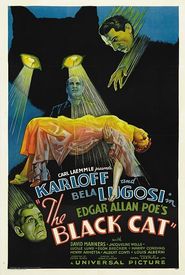Edgar Georg Ulmer was an Austrian-American film director born on September 17, 1904. He is best known for his stylish and eccentric films, particularly The Black Cat (1934) and Detour (1945),which have achieved cult status. Ulmer's early work included the low-budget exploitation film Damaged Lives (1933),which exposed the horrors of venereal disease, and The Black Cat (1934),a Universal Pictures production starring Béla Lugosi and Boris Karloff.
Ulmer's personal life was marked by controversy, as he began an affair with Shirley Beatrice Kassler, who was married to independent producer Max Alexander. After Kassler's divorce and subsequent marriage to Ulmer, he was exiled from major Hollywood studios and relegated to making B movies at Poverty Row production houses. His wife, Shirley, acted as script supervisor on many of these films and wrote screenplays for several.
Despite his exile from mainstream Hollywood, Ulmer continued to direct films, often specializing in "ethnic films" such as Ukrainian and Yiddish productions. His most notable ethnic films include Natalka Poltavka (1937),Cossacks in Exile (1939),The Light Ahead (1939),and Americaner Shadchen (1940). Ulmer's Yiddish film Green Fields (1937),co-directed with Jacob Ben-Ami, is particularly well-known.
In the 1940s, Ulmer found success making melodramas on tiny budgets for Producers Releasing Corporation (PRC). His PRC thriller Detour (1945) has gained a reputation as a prime example of low-budget film noir and was selected by the Library of Congress for preservation. Ulmer also directed Carnegie Hall (1947),a film featuring performances by leading classical musicians, and two films with substantial budgets, The Strange Woman (1946) and Ruthless (1948).
In the 1950s and 1960s, Ulmer continued to direct films, including the science-fiction film The Man from Planet X (1951) and his final film, The Cavern (1964),made in Italy.




























































